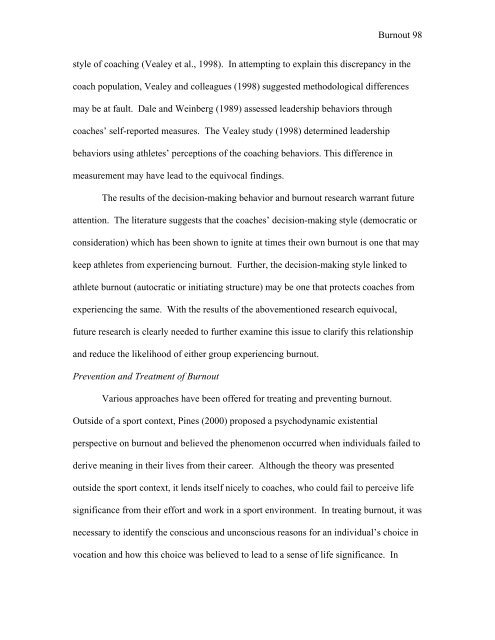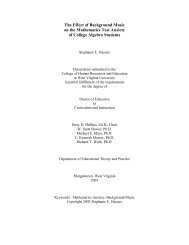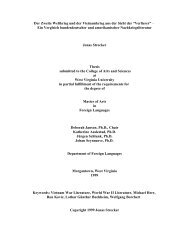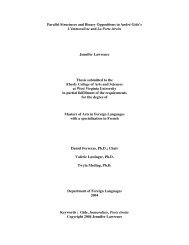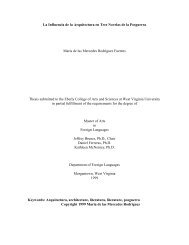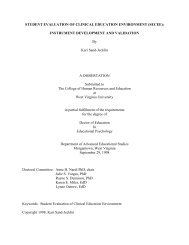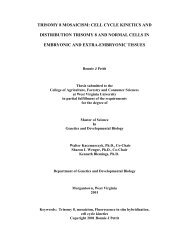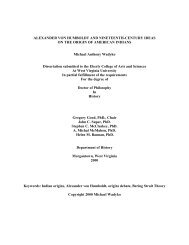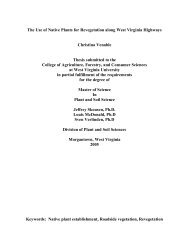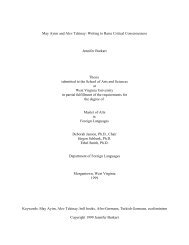Coach and Athlete Burnout - West Virginia University
Coach and Athlete Burnout - West Virginia University
Coach and Athlete Burnout - West Virginia University
You also want an ePaper? Increase the reach of your titles
YUMPU automatically turns print PDFs into web optimized ePapers that Google loves.
<strong>Burnout</strong> 98<br />
style of coaching (Vealey et al., 1998). In attempting to explain this discrepancy in the<br />
coach population, Vealey <strong>and</strong> colleagues (1998) suggested methodological differences<br />
may be at fault. Dale <strong>and</strong> Weinberg (1989) assessed leadership behaviors through<br />
coaches’ self-reported measures. The Vealey study (1998) determined leadership<br />
behaviors using athletes’ perceptions of the coaching behaviors. This difference in<br />
measurement may have lead to the equivocal findings.<br />
The results of the decision-making behavior <strong>and</strong> burnout research warrant future<br />
attention. The literature suggests that the coaches’ decision-making style (democratic or<br />
consideration) which has been shown to ignite at times their own burnout is one that may<br />
keep athletes from experiencing burnout. Further, the decision-making style linked to<br />
athlete burnout (autocratic or initiating structure) may be one that protects coaches from<br />
experiencing the same. With the results of the abovementioned research equivocal,<br />
future research is clearly needed to further examine this issue to clarify this relationship<br />
<strong>and</strong> reduce the likelihood of either group experiencing burnout.<br />
Prevention <strong>and</strong> Treatment of <strong>Burnout</strong><br />
Various approaches have been offered for treating <strong>and</strong> preventing burnout.<br />
Outside of a sport context, Pines (2000) proposed a psychodynamic existential<br />
perspective on burnout <strong>and</strong> believed the phenomenon occurred when individuals failed to<br />
derive meaning in their lives from their career. Although the theory was presented<br />
outside the sport context, it lends itself nicely to coaches, who could fail to perceive life<br />
significance from their effort <strong>and</strong> work in a sport environment. In treating burnout, it was<br />
necessary to identify the conscious <strong>and</strong> unconscious reasons for an individual’s choice in<br />
vocation <strong>and</strong> how this choice was believed to lead to a sense of life significance. In


